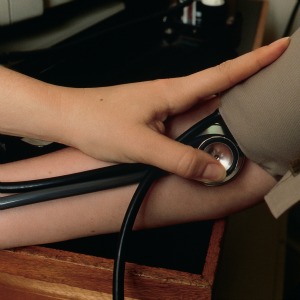The Government’s flagship vascular health screening programme for over-40s appears to be floundering following disappointing figures and a critical report by the Commons Health Committee, despite Public Health England’s unwavering commitment to expanding it across the UK.
Latest official figures show that the number of people offered a check-up through the NHS Health Check programme has gone up slightly since last year – but the proportion who actually took up the offer declined, making it more unlikely Public Health England (PHE) would meet its target of a 70% acceptance rate by 2018/19.
This comes in the same week as MPs singled out NHS Health Checks as a cause for concern in a highly critical Health Committee report on PHE, which included reports that health professionals were being leant on to refrain from criticising the project in public.
The programme aims to help prevent heart disease, stroke, diabetes, kidney disease and certain types of dementia by inviting everyone between the ages of 40 and 74 who has not had these conditions for a check-up to assess their risk every five years.
But GPs have warned that it has proved a poor use of money and that the Government should change to a more targeted approach.
The PHE figures revealed that by the end of December last year, just over two million out of the total 15 million eligible people nationally had been offered the check. This equates to around 13% of the overall eligible population compared with just under 12% at the same point last year.
However, the proportion receiving the checks has gone down slightly, with 48.1% of people taking up the offer so far – compared with 49% of the 2.5 million offered it last year and 51% of 2.2 million offered in 2011/12.
This suggests PHE faces an uphill struggle to get the programme on track and drive acceptance rates up to over 70%.
The public health body announced a major drive on NHS Health Checks last year with the goal of inviting all 15 million eligible people for a check by 2018/19, or three million each year from 2013/14 onwards.
But conceding uptake had been too low, particularly in some areas, PHE said it was aiming to drive the acceptance rate up to around 70-75%.
The report from the Health Committee found that public health professionals had been leant on not express their opinions on NHS Health Checks in public, following widespread criticism of the evidence base for the programme that made national headlines last year.
Following that negative media coverage, one PHE adviser admitted to Pulse he had reservations about the programme and believed it should target the population on the basis of risk rather than a simple age cut-off.
The committee concluded that as part of its ongoing evaluation of the project, ‘PHE should consider the opportunity cost of investing in Health Checks instead of other proven public health initiatives’.
Speaking to Pulse about the latest findings, Dr Rob Barnett, Liverpool LMC secretary and a GP in the city, said the approach to vascular screening through Health Checks was questionable and could be better targeted.
Dr Barnett said: ‘I would question the value of them both in terms of time and resources as to whether they are beneficial to society at large. I think health checks that are targeted are probably more beneficial than indiscriminately inviting everyone in above a certain age.’
He added: ‘My own personal experience has been that patients haven’t responded particularly well to getting a blind invite, but if they’ve been in to see the GP, and the GP has said I think it would be good for you to go for a check-up – it’s been at that point that patients have said. So I think offering opportunistic check-ups is more effective.’
Dr Chris Arden, a GPSI in cardiology in Hampshire, said he supports the NHS Health Checks programme ‘in principle’ although it needs more localised strategies to deliver it successfully.
Dr Arden said: ‘I think the general principle is ok and we should be pushing on with it, but we should be looking at strategies to bring up the lowest performers.
‘There’s always going to be that hard-to-reach population, demographics and location are a big factor. Certainly locally, in my area, the response has been very good, it’s been delivered by general practices and it’s worked very well.
‘But in some of the cities, you may need to look at other models of where and how it’s delivered. Certainly in Asian populations with high prevalence of these diseases, a lot don’t take it up because it’s not delivered in the right setting, so we need to make sure in those areas there is something more culturally sensitive.’
Jamie Waterall, PHE lead on NHS Health Checks, said: ‘Since local authorities became responsible for commissioning NHS Health Checks in April 2013 the number of people being offered and having a check has improved but everyone understands there is more to be done. PHE is supporting local authorities to promote uptake and find innovative new ways to do this with the ambition of having 75% of the eligible population take up their offer of a check with improved health outcomes by 2018.’

















